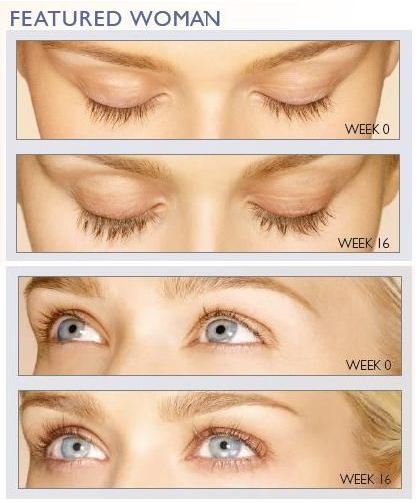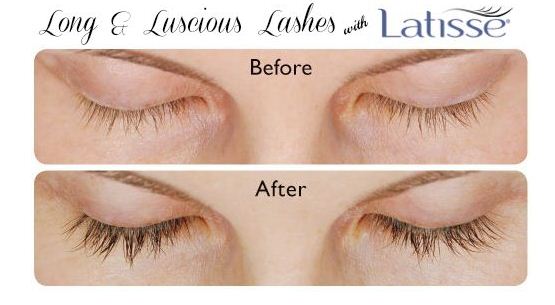Latisse® Treatment in Reno
Who wants great eyelashes? Silly question. Who doesn’t? Great eyelashes aren’t a matter of luck or heredity and don’t happen overnight. Latisse® (generic=’bimatoprost’) is the first FDA approved solution to treat “hypotrichosis,” namely shortening, thinning, and lightening of eyelashes.
Applied nightly, you will notice, within four weeks, a change in length of your lashes. Latisse in Reno increases the percent of hairs in, and the duration of the anagen or growth phase. (1) With continued use, they will thicken and then darken. The full effect takes place by week 16.


How Do I Apply Latisse®?
Latisse is applied evenly along the skin of the upper eyelid margin at the base of the eyelashes. The goal is an increase in eyelash length, thickness, and darkness.
Does Latisse® Work?
Most Definitely Yes! Unlike over the counter eyelash supplements, usually, conditioners or “thickeners” that temporarily make your lashes look or feel thicker, Latisse, with continued use, grows real longer, thicker and darker permanent lashes.

What if I Stop or Forget Latisse®?
Miss a few days and nothing appreciable happens. If this is your first Latisse ‘cycle,’ you may take longer than 16 weeks to get maximum improvement. If Latisse is stopped completely, your eyelashes will return to your pretreatment level over several weeks and your lashes, like overdue Botox with wrinkles, will look as if you never used Latisse.
Can I Use Latisse® if I wear Contact Lenses?
Latisse is absorbed by soft contact lenses resulting in an increased concentration in the eye itself, Removed contacts prior to applying Latisse. Wait 15 minutes before reinserting.
Are There Any Precautions to Take with Latisse®?(2)
1. A Few
- Iris Pigmentation Increase
- Due to increased melanin content
- May not occur for months to years after administration.
- Thought to be permanent.
- Long-term effects are unknown.
- Brown pigmentation around pupil will spread concentrically towards the periphery of the iris.
- Treatment with Latisse® solution can be continued in patients who develop noticeably increased iris pigmentation.
2. Lid Pigmentation
- May cause pigment changes (darkening) to periorbital pigmented tissues and eyelashes.
- Increases as long as Latisse administered
- Reverses to baseline upon discontinuation in most patients.
3. Hair Growth Outside the Treatment Area
- Hair may grow in areas where Latisse® solution comes in repeated contact with the skin surface.
- Apply only to the skin of the upper eyelid margin at the base of the eyelashes
- Patient blot excess Latisse® from the eyelid margin to avoid running down the cheek or other skin areas.
4. Intraocular Inflammation
- May exacerbate in patients with intraocular inflammation
5. Macular Edema
- Macular edema may occur in patients with elevated intraocular pressure.
- Use with caution in aphakic patients, in pseudophakic patients with a torn posterior lens capsule, or in patients with known risk factors for macular edema.
6. Contaminated Applicators
- Use new applicator for each eye
Random Thoughts
- Use on the upper eyelid only.
- Pigmentation or browning of the skin around the eyelid is reversible
- Pigmentation of the iris (the white of the eye) may be delayed even years later and is thought to be permanent
- Hair may grow in other areas frequently touched by Latisse. Blot excess solution outside the upper eyelid margin.
- A difference in eyelash length, thickness, fullness, pigmentation, number of eyelash hairs, and/or direction of eyelash growth may occur between eyes. The anomalies, should they occur, will go away if you stop using Latisse® in Reno.
- https://www.drugs.com/pro/latisse.html
- https://www.drugs.com/pro/latisse.html
